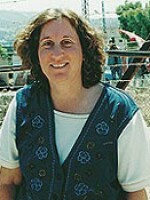STEVE INSKEEP, host:
Palestinian leaders say they're going to start talking again about a unity government. On one side, there's the Palestinian President Mahmoud Abbas. On the other side there's Hamas, the militant group that won elections early this year.
The sticking point is Israel. Hamas has not accepted previous Palestinian agreements with the Israelis. Now both sides say they cannot make a deal until Israel acts. They want Israel to free Palestinian government officials who've been arrested.
Here's NPR's Linda Gradstein.
LINDA GRADSTEIN reporting:
On June 25th, Palestinian militants crept through a tunnel they had dug under Israel's border with Gaza and captured Israeli solider Gilad Shalit, who is still believed to be held in Gaza.
One of the three groups that took responsibility for his capture was Hamas, which heads the Palestinian government. Over the next few days, Israeli troops surrounded the homes of more than two dozen Palestinian parliament members, all but one of them from Hamas, and arrested them.
Israeli Foreign Ministry spokesman Mark Regev says Hamas is a terrorist organization and the parliament members have been arrested on suspicion of terrorist activity. But he admits Israel is also trying to pressure Hamas to release Gilad Shalit.
Mr. MARK REGEV (Spokesman, Israeli Foreign Ministry): Our message to the Palestinian Authority is clear. If you act like statesmen, if you act like politicians, you will get the respect that you deserve. If you are acting like terrorists, if you're involved in kidnappings, if you're involved in shooting rockets into Israeli cities, you can't be surprised that we treat you accordingly.
GRADSTEIN: One of those arrested is Dr. Hassan Khreishe, the deputy speaker of the Palestinian parliament and the only one who is not a member of Hamas. Perhaps that's why, unlike his colleagues, Khreishe was released after almost a month in jail.
He says he was held in a jail near the Israeli city of Haifa. Khreishe says even the interrogators admitted there were no charges against him and didn't have anything to ask him. He says Israel is trying to destroy the democratically elected Hamas government.
Dr. HASSAN KHREISHE (Deputy Speaker, Palestinian Parliament): I think it is a political blackmailing, some sort of finishing or trying to change the result of elections. And I think this is some sort of double standard of understanding democracy.
GRADSTEIN: Khreishe says the arrests of the parliamentarians, including three cabinet members, makes it almost impossible for the Hamas government to function.
Dr. KHREISHE: Now we are working by fax, by mail, but practically there is no government, there is authority at all.
GRADSTEIN: A dozen members of the Palestinian parliament were already in jail before the elections. With the 29 additional detentions, almost a third of the parliament is in jail. Those who are not arrested have gone underground. Mahmoud al-Ramahi, an anesthesiologist and the secretary general of the Palestinian parliament, says he never sleeps at home anymore.
Ramahi says the parliament has held three sessions since the arrests, but admits that little work has been done.
Mr. MAHMOUD AL-RAMAHI (Secretary General, Palestinian Parliament): So now we have many problems and we have many matters to discuss and we can't do it with the presence of all our colleagues inside the prisons. For that we are asking, and we're making now a campaign of pressure, to release these persons because they haven't any charge. And they can't make any charge for them.
GRADSTEIN: Ramahi says the Hamas political wing, to which he belongs, had nothing to do with the capture of the Israeli soldier by the military wing. Israel says it's all one organization.
In the past few weeks, there have been several reports that the release of the Israeli soldier was imminent. Egyptian officials say they're trying to broker a deal in which Israel will release 600 Palestinian prisoners out of a total of 10,000 in exchange for the soldier. Until then, Secretary General Ramahi says, he's staying underground.
Linda Gradstein, NPR News, Ramallah. Transcript provided by NPR, Copyright NPR.






